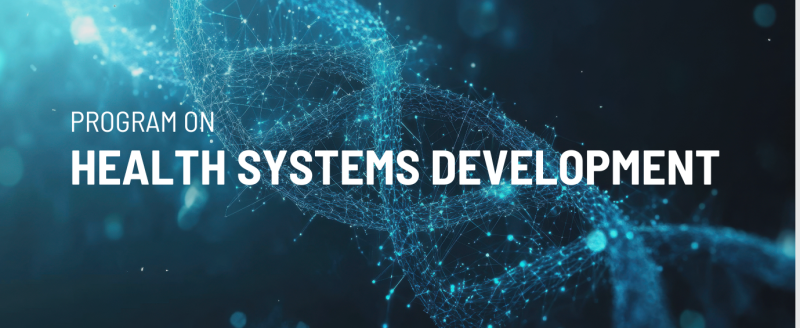Workforce capacity-building in primary care through an evidence-based clinical decision tool

By Carla Marie L. Asis and Mia P. Rey
SUMMARY
Strengthening the primary healthcare system involves capacity-building for primary care providers (PCPs). Central to this initiative is ensuring that PCPs have access to updated health-related references. A study conducted by the Philippine Primary Care Studies (PPCS) revealed that UpToDate® (UTD), an established evidence-based clinical decision support (CDS) tool, is both feasible and highly acceptable across urban, rural, and remote settings in the Philippines. Primary care providers, especially in rural and remote settings, reported increased confidence in providing care and improved communication with patients. The study also identified important barriers to UTD use. Recommendations to mitigate these barriers and maximize the potential of UTD in improving primary care in the Philippines is outlined in this policy brief.
=====================================================
WORKFORCE CAPACITY-BUILDING IN PRIMARY CARE
A country’s success in achieving a strong primary healthcare system relies on the knowledge, skills, motivation, and deployment of its workforce. Central to workforce capacity-building is ensuring that PCPs, including physicians, nurses, midwives, and community health workers, have access to updated health-related references. Limited access to such resources can exacerbate the inequities that are already present in the Philippine healthcare system.
EVALUATING UpToDate® IN PHILIPPINE PRIMARY CARE
The PPCS aimed to improve primary healthcare in the Philippines by testing interventions in three pilot sites (urban, rural, and remote). These interventions focused on areas like primary care financing, health information systems, training healthcare workers, connecting public and private providers, and engaging communities. The goal was to enhance primary care quality, improve PCP knowledge, increase patient and provider satisfaction, reduce out-of-pocket costs, and improve administrative efficiency.
One specific intervention was providing free access to UTD for all PCPs. UpToDate® is an established CDS tool that offers a range of features including medical calculators, drug interactions, patient education, and the latest evidence-based medical information. It was believed to improve PCP knowledge and enable them to make evidence-based decisions for patient care. The PPCS conducted a study to determine if UTD was feasible and acceptable for use in different settings and to evaluate its impact on PCPs’ clinical decision-making (Calderon et al, 2024). The study revealed the following:
- Feasibility: UpToDate® was a feasible tool in all three settings (urban, rural, remote), but access to reliable internet, compatible devices, and stable electricity supply posed challenges, particularly in rural and remote areas.
- Acceptability: UpToDate® was highly acceptable due to its comprehensiveness, accessibility, and user-friendly design. PCPs found it useful for explaining diseases, treatments, and home management care to However, unavailability of preferred language affected ease of use.
- Impact: UpToDate® positively impacted decision-making and patient education. Primary care providers, especially in rural and remote settings, reported increased confidence in providing care and improved communication with patients.
SUPPORTING THE WORKFORCE THROUGH UpToDate® ACCESS
| POLICY IMPLICATIONS | RECOMMENDATIONS |
| ● Addressing Barriers: Addressing external barriers, such as poor internet access and lack of compatible devices, is crucial to maximize the impact of UTD. | Barriers to access, particularly in rural and remote areas, should be prioritized. This includes improving internet infrastructure, providing subsidies for devices, and ensuring access to affordable electricity. |
| ● Training and Support: UTD use among PCPs should be actively promoted, highlighting its benefits and providing adequate training and support. | Policymakers and healthcare organizations should invest in training and support for PCPs to effectively use UTD, including hands-on training, for its successful implementation. |
| ● Language Support: Addressing limited language options in UTD platforms is essential for effectiveness and ease of use. | Training of PCPs on the use of UTD should include effective translation of medical information provided by the platform into language that will allow patients to fully grasp the relayed information, especially for common conditions encountered in primary care. |
| ● Incentivize the Use of UTD: Recognizing UTD as an accredited continuing education resource will encourage more PCPs to use it and promote ongoing learning among healthcare professionals. | The recognition of UTD as a valid resource for continuing professional development should be implemented by professional societies and agencies. |
UTD, UpToDate®; PCPs, primary care providers
THE PATH FORWARD
UpToDate® holds significant potential for improving primary care in the Philippines. By addressing barriers to access, providing adequate support, and fostering wider adoption, policymakers and healthcare providers can work towards enhancing the quality and accessibility of primary care services in the country.
=======================
Citation:
Calderon Y, Sandigan G, Tan-Lim CSC, et al. Feasibility, acceptability and impact of a clinical decision support tool among primary care providers in an urban, rural and remote site in the Philippines. BMJ Open Quality 2024;13:e002526. doi:10.1136/ bmjoq-2023-002526